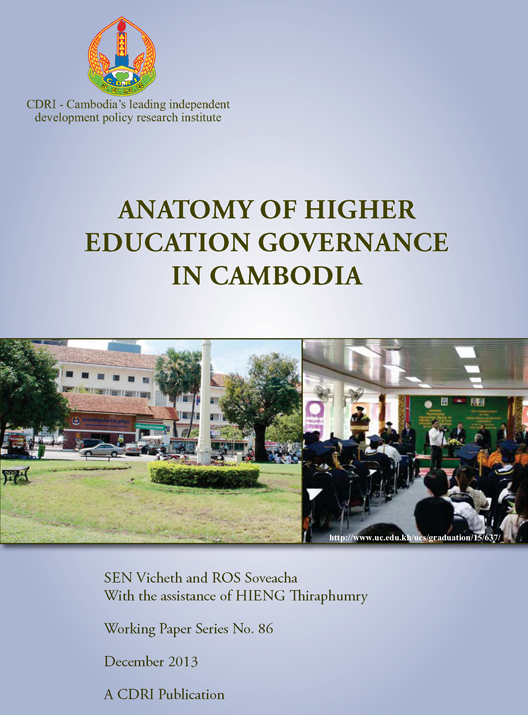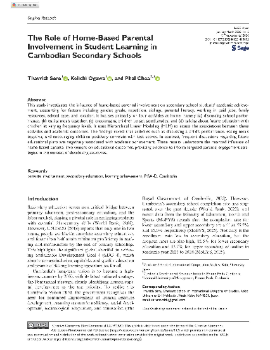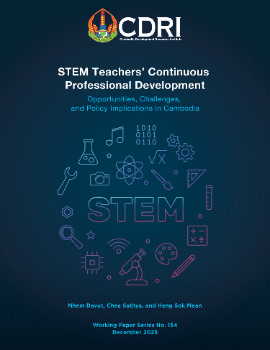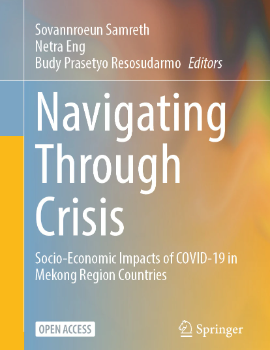
Anatomy of Higher Education Governance in Cambodia
Keyword: Higher education governance, skilled workforce, market demands, talented citizens, economic activities
Abstract/Summary
Higher education plays a fundamental role in enhancing the intellectual capacity essential to creative leadership in all fields of national activity and in providing a skilled workforce able to respond to changing labour market demands. All citizens, and particularly the poor, need the opportunity and the skills to participate productively in the labour market and other economic activities.
Improving the quality of higher education means providing the skills and capacities to think logically and critically for a society’s most talented citizens, including the disadvantaged, so allowing them to participate in, make a major contribution to and lead growth. Countries around the world now face challenges in establishing and sustaining governance to ensure quality higher education for rapidly growing enrolments.
Cambodia is different in having to face these challenges without the assistance of a previous generation of university graduates, who should by now have become competent and experienced planners and managers, but who were dispersed and in many cases annihilated by a generationlong internal conflict spurred by ideological competition between external powers.
There is an acknowledgement by the institutions concerned of the underdeveloped governance arrangements in Cambodia’s higher education system, which negatively impact the quality of higher education. This study aims to contribute to and inform existing efforts to improve higher education governance by mapping the governance structure of Cambodia’s current system and identifying core issues. Interviews on these issues were conducted with high-level policy makers in government ministries, departments and institutions, representatives from development partners, scholars or researchers in this area, senior national and international education consultants and the private sector.



